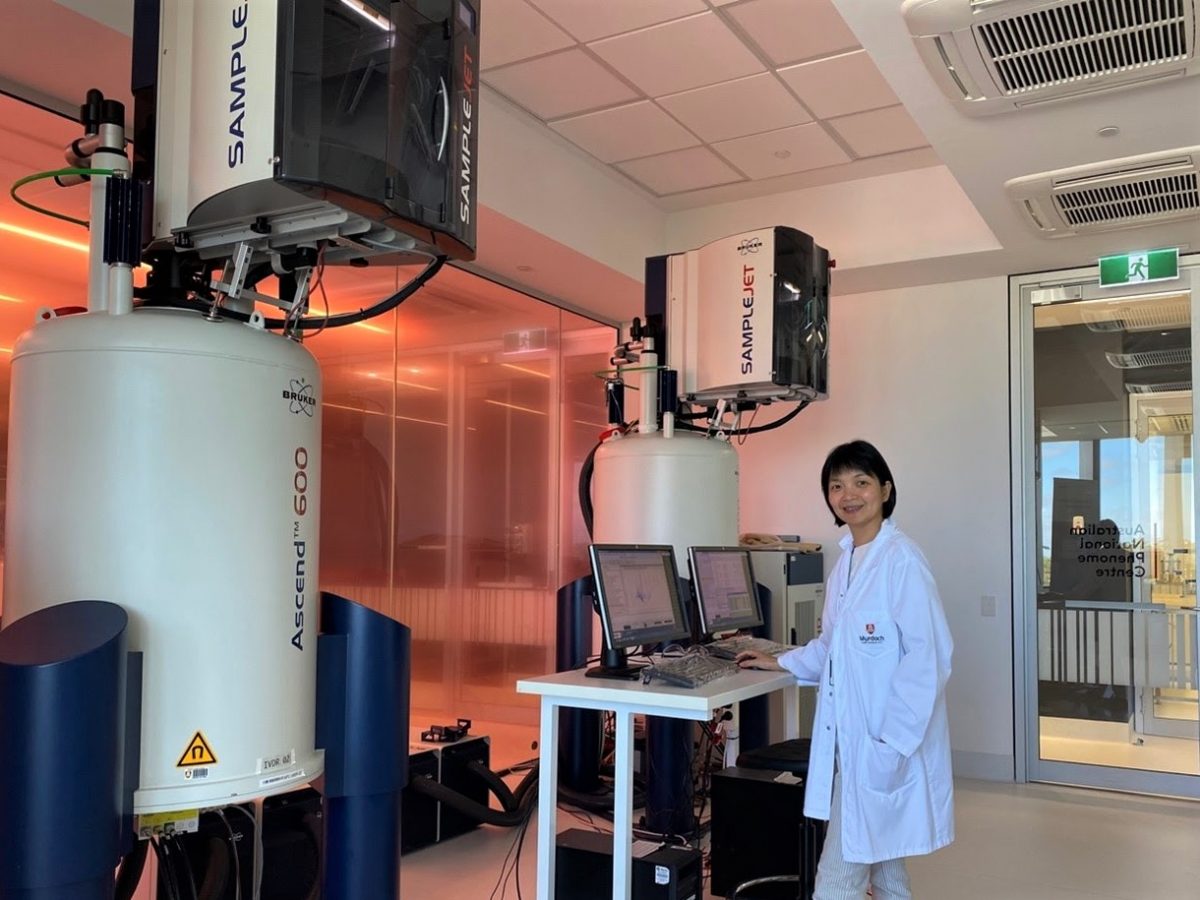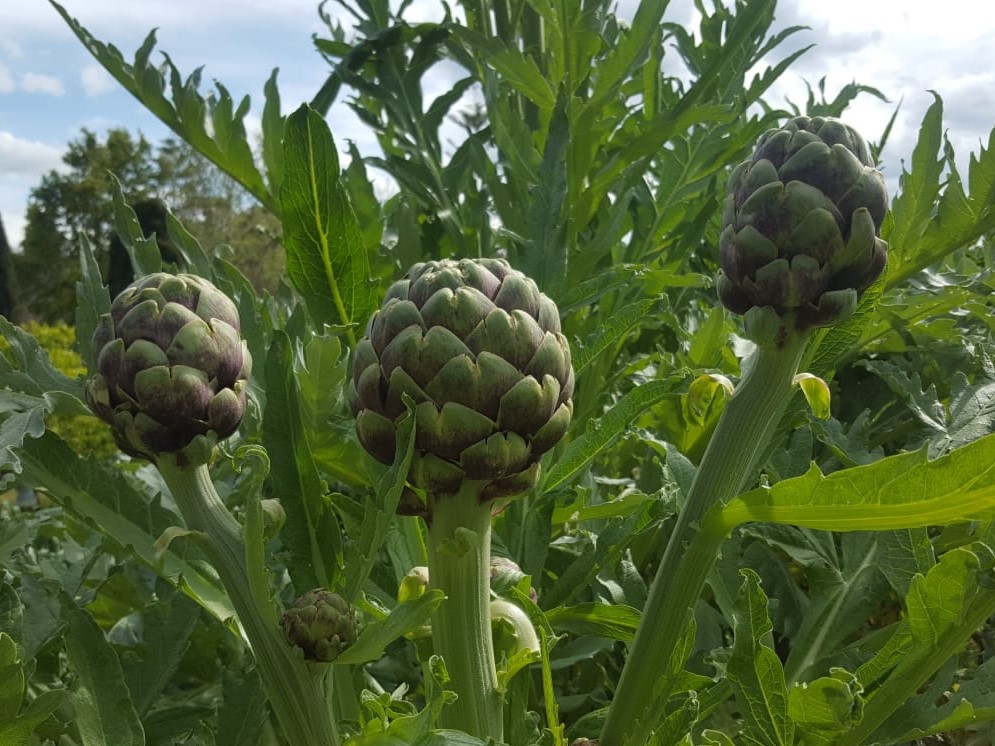Mt Lindesay has been developing globe artichoke cultivars that are high in long-chain inulin.
Inulin molecules travel down to the gut, where they feed the good bacteria. The presence of inulin has been linked to health benefits such as improving blood lipid profiles and glucose metabolism. The potential benefit may be affected by the length of the inulin chain. This can be influenced by various factors including harvesting time, climatic conditions, growing season and duration of storage.
This four-year Future Food Systems CRC project aims to analyse and validate key chemical signatures of globe artichokes, in particular with respect to inulin, to guide future breeding and commercialisation activities.

Dr Ruey-Leng Loo at the Australian National Phenome Centre on Murdoch University’s Perth, WA campus. Credit: Murdoch University
Mt Lindesay scientists Dr Mark McHenry and Dr Julia Anwar McHenry will collaborate with Dr Ruey-Leng Loo from the Australian National Phenome Centre (ANPC) and Associate Professor Vicky Solah from the College of Science, Health, Engineering and Education at Murdoch University.
Led by Dr Loo, the Murdoch University scientists will compare the chemical profiles of various Australian artichokes, including Mt Lindesay cultivars, using technologies such as Nuclear Magnetic Resonance (NMR) spectroscopy and Mass Spectrometry.
Associate Professor Vicky Solah will complement the data with nutritional and sensory evaluations and postprandial satiety trials.
It is expected the project will develop new analytical methods and technologies for monitoring and defining the quality of globe artichokes; and provide a robust scientific basis for understanding the unique quality and properties of Mt Lindesay’s artichoke cultivars.


